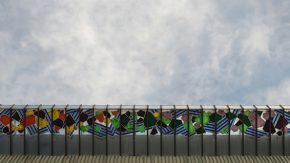Social Emotional Learning – Student Agency and Responsibility
As we head into the holiday break it is timely to reflect upon the importance that families play in the social emotional learning and wellbeing of our students. Our social emotional learning program at school, Second Step, and our Pastoral Care focus are only a part of the wellbeing development of our students.
Childhood experiences have lasting impacts and the relationships children and young people experience directly impact their wellbeing. Those provided with social, emotional and physical support are more likely to reach their full potential and experience better health outcomes in adulthood.
Families directly affect development and long-term wellbeing
The home environment and family functioning are the biggest influencers on development, with the learning environment the next most influential setting.
Healthy family relationships help children and young people feel secure and loved. This state impacts their brain development and sense of self (that is, a realistic sense of their skills and abilities, and where and how they fit into the world).
Positive relationships with family support individuals in building independence, responsibility, confidence and trust. They provide a place where these can be explored safely, where there’s guidance and room for mistakes. Families also give children and young people a model from which they learn about relationships and how to build connections throughout their lives. Children and young people who learn healthy relationship skills are more likely to experience positive peer relationships and grow up to become confident and resilient individuals.
As children and young people develop, different environmental influences – the people and institutions around them – assume greater influence during different life stages. Children and adolescents aren’t just passively moulded by external forces – they have agency and choice which enables them to shape and influence their own development.
- Brain development: how the brain develops during childhood and adolescence has a long-lasting influence on a person’s physical and mental health.
- Child development: child development can have lasting impacts on mental health.
- Adolescent development: adolescence is a time of rapid biological, psychological, cognitive, emotional and social change.
- Social and emotional learning: social and emotional learning skills are essential for good mental health and wellbeing.
- Social development: social development is about learning the skills to relate to and interact with others.
- Emotional development: social and emotional learning (SEL) helps us understand and manage our emotions, set and achieve goals and feel good about ourselves.
So, have a restful holiday break and remember to provide your son with experiences and opportunities that will allow them to develop and demonstrate agency and responsibility, whilst also building their social and emotional learning skills.
Pascal Czerwenka – Deputy Head of Lindfield / Year 5 Teacher






